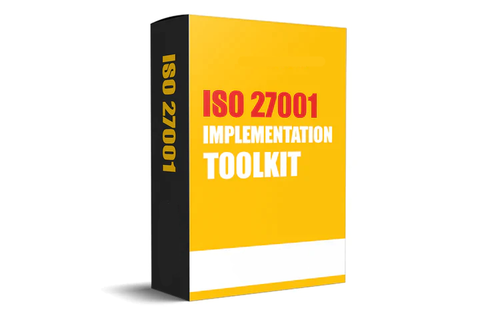A Comprehensive Guide To ISO/IEC 27001
In an age where digital data is vital to businesses and organizations alike, protecting sensitive information against cyber threats is paramount. ISO/IEC 27001 is a symbol of security in the world of information. This comprehensive guide will shed light on the importance, key components, benefits, and processes to achieve and maintain this esteemed certificate.
ISO/IEC 27001: The Essence
ISO/IEC 27001 offers more than a certification. It's a comprehensive framework that helps organizations protect their valuable information assets. This international standard is a systematic approach to Information Security Management. It ensures that organizations have the tools and practices necessary to identify, evaluate, and address any potential risks. ISO/IEC 27001 is a structured method that emphasizes confidentiality, integrity, and availability, the three pillars of information security.
ISO/IEC 27001: Key Components
- Risk Management And Assessment: ISO/IEC 27001's risk-based approach is the cornerstone. Risk assessments are conducted by organizations to identify vulnerabilities and threats to information assets. The meticulous process allows them to develop a set of tailored security controls that will effectively mitigate the identified risks.
- Information Security Policy: An organization's information security measures are guided by a robust set of policies. These policies cover a variety of topics, such as access control, data classification, incident response, and more. These policies provide a roadmap to ensure that all employees are aware of their roles and responsibilities when it comes to maintaining information security.
- Risk Management Plan: After identifying the risks, organizations create a plan to manage and address them. It involves choosing appropriate security controls that can range from technological solutions to procedural changes to mitigate potential threats.
- Continuous Improvement: ISO/IEC 27001 encourages a culture that is based on continuous improvement through regular updates and reviews. Organizations continually evaluate and improve their Information Security Management System to adapt to changing threats, technological advances, and changing business landscapes. This dynamic approach ensures an organization's safety measures remain effective and relevant over time.
Benefits Of ISO/IEC 27001 Certification
- Enhanced Security Posture: ISO/IEC 27001 is an honor badge that shows a company's commitment to robust information security. A certified ISMS will help an organization defend against cyber threats such as hacking, data breaches, and malicious attacks.
- Confidence Of Clients And Stakeholders: The foundation of any successful relationship is trust. ISO/IEC 27001 Certification communicates to clients and partners that an organization values the protection of sensitive data. This increased level of confidence may lead to stronger relationships and more business opportunities.
- Legal Compliance: Today's business environment is rife with legal and regulatory requirements relating to data privacy and safety. ISO/IEC 27001 offers organizations a framework that is aligned with many of these regulations. This helps to facilitate compliance and reduces the risk of legal repercussions.
- Cost Savings: Although the initial investment to implement ISO/IEC 27001 practices and controls may seem substantial, the costs associated with a security breach are far greater. In order to mitigate the reputational and financial fallout of a data breach, organizations should address vulnerabilities proactively.
- Competitive Advantage: A digital world, where cyber threats and data breaches are commonplace, can help an organization stand out from the competition. It shows a commitment to information security excellence, which could attract clients and partners that prioritize data protection.
The ISO/IEC 27001 Certification Process
The certification process for ISO/IEC 27001 is meticulous and well-structured. It involves several stages.
- Start: This journey begins when the organization decides to pursue ISO/IEC 27001 Certification. The implementation process is spearheaded by a dedicated team.
- Gap Analysis: An extensive assessment is performed to identify existing security practices and measures. This analysis highlights gaps between existing practices and requirements in ISO/IEC 27001.
- Risk Assessment: Organizations carefully evaluate the potential risks and vulnerabilities that could compromise their information assets' confidentiality, integrity, or availability.
- Treatment Of Risk: After identifying risks, organizations create a treatment plan. This plan will outline the controls and measures that are implemented to effectively mitigate and manage risks.
- Documentation & Implementation: Policies and procedures are documented in detail and implemented throughout the organization. Often, this step involves training staff on new security measures.
- Internal Audits: Regular internal audits are conducted in order to assess the effectiveness of implemented controls and identify improvement areas. These audits are conducted to ensure that the ISMS is robust and in line with ISO/IEC 27001 standards.
- Certification Audit: A certified certification body performs a thorough audit to determine the organization's conformance with ISO/IEC 27001. This audit examines the information security practices of an organization.
- Certification Decision: The certification body decides on ISO/IEC 27001 certification based on the audit results. The organization is awarded the certification if it meets the requirements.
- Continuous Monitoring And Improvement: ISO/IEC 27001 does not represent a single achievement but a commitment that continues over time. To maintain certification, organizations must continually monitor their ISMS and conduct regular internal audits. They also need to adapt to the changing threat landscape and technological advances.
Conclusion
ISO/IEC 27001 is a guiding light, illuminating the path towards 27001 is a guide that illuminates the path to robust information security management. The comprehensive framework helps organizations create a strong shield against cyber threats, build trust with stakeholders, and become leaders in protecting sensitive data. The ISO/IEC 27001 journey is not just a sign of an organization's commitment to information security but also a strategic decision to invest in the future resilience of that organization. ISO/IEC 27001 Certification equips organizations to navigate the digital world as it continues to evolve.






